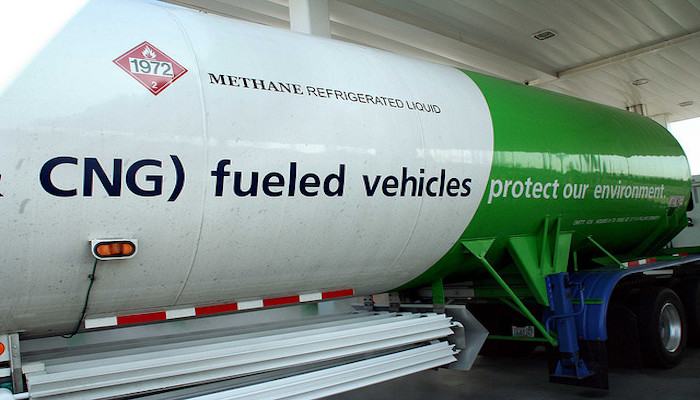From Adanna Nnamani, Abuja
In a strategic move to alleviate the financial burden on Nigerians facing soaring energy and transportation costs, the federal government has announced the launch of the Credit Access for Light and Mobility (CALM) Fund.
The initiative, which will be overseen by the Ministry of Finance Incorporated (MOFI), Nigerian Consumer Credit Corporation (CREDICORP), and the Presidential Initiative on CNG (PI-CNG) Ltd, aims to provide accessible loans for CNG conversion kits and solar energy installations, promoting sustainability and reducing dependency on costly fuels.
Speaking at the Memorandum of Understanding (MoU) signing ceremony in Abuja on Wednesday, CEO of MOFI, Dr Armstrong Takang, said that the initiative is part of efforts by the federal government to provide cheaper alternative energy sources for Nigerians and their businesses by empowering them through innovative financial solutions.
He said that the partnership consists of MOFI, which is tasked with expanding the initial ₦10 billion fund through collaborations with private and institutional investors; CREDICORP, acting as the Fund Manager responsible for loan management and offering credit guarantees, with an initial contribution of ₦2.5 billion; and PI-CNG Ltd, serving as a service provider to facilitate vehicle conversions and provide discounted packages for CALM loan users.
The CEO said: “Over the last several months, one of the things that most Nigerians, including all of us in here, have experienced is the high cost of transportation due to the reform taking away fuel subsidy. It is one of the unintended consequences of the reforms that are absolutely necessary if we are going to build a robust economy. Let’s be very clear.
“These reforms are necessary, but they come with unintended consequences. And we have a collective responsibility to work together to find solutions to deal with those unintended consequences. One of those unintended consequences is the fact that the cost of transportation has spiked over the last several months and is creating a lot of challenges for many families who are now finding it difficult to move around.
“And we must find alternative means to reduce that cost while people still go about their business and go to work. And the good news is that the federal government has a solution for that. And PICNG will speak about that, which is the CNG programme.
“But we also recognise the fact that it is not possible for us to have to pay for everything up front at all times, especially for items that are capital intensive in nature. And that is why the federal government came up with the programme of consumer credit. We do not need to have to afford the total amount to buy basic items that we need every day, whether it is in terms of trying to convert our car to CNG, the conversion kit, or having to pay for it up front. It’s quite capital intensive. Most people can’t afford it, yet they need it.
“So the government has provided an opportunity to have access to credit to afford items such as that. We also have major challenges with the increase in electricity at our homes. Most of us are paying more now than we used to pay before, and it is creating a challenge in terms of our affordability and how much we have, which is one of the reasons why the part of the access to credit is to allow us to find alternative, cleaner sources like solar for our homes
“And so we’re here today to launch a programme that will give Nigerians access to credit for both transportation as well as light, so that they can afford not necessarily to compromise their standard of living, but to reduce how much it costs them to live the same lifestyle, or even better, but cheaper, and they are able to have access to credit to do that without having to afford the lump sum up front.”
The Managing Director of Credit Corp, Uzoma Nwagba, explained that Nigerians can secure the loans through Participating Financial Institutions (PFIs), adding that accredited PCNGI conversion centres will also promote the financing option to their customers.
In addition to immediate access to credit, Nwagba stated that the initiative is designed to encourage domestic manufacturing of conversion kits, fostering job creation and reducing energy costs for Nigerians.
“This kind of scheme has a tendency to attract the investment that will enable these conversion kits to be manufactured domestically. We have another programme down the road also being coordinated with MOFI that will be speaking more to domestic manufacturing capacity for the CNG sector,” he noted.
